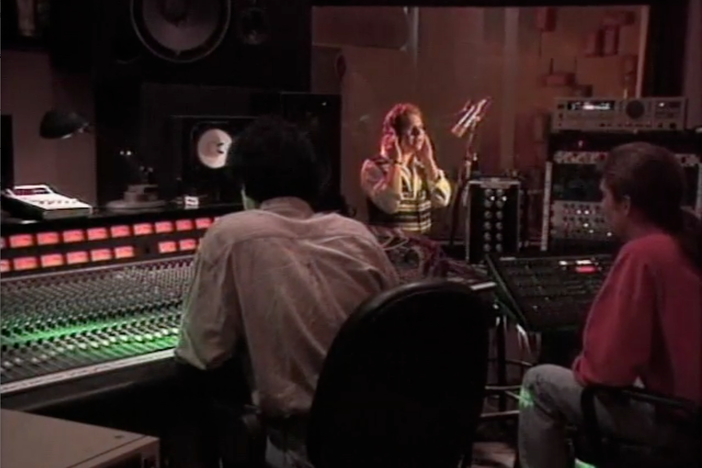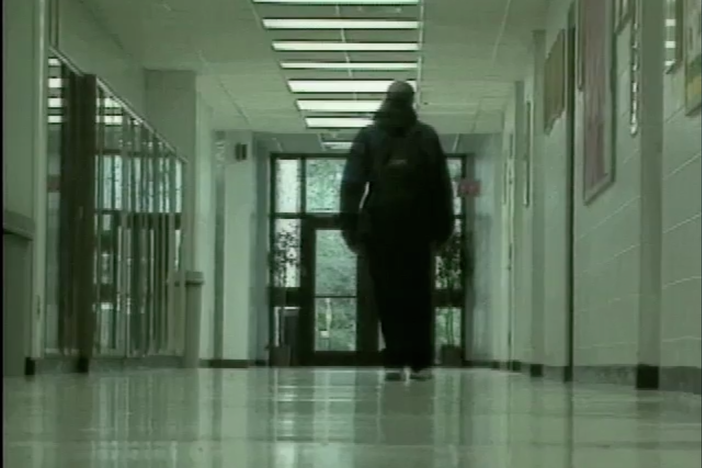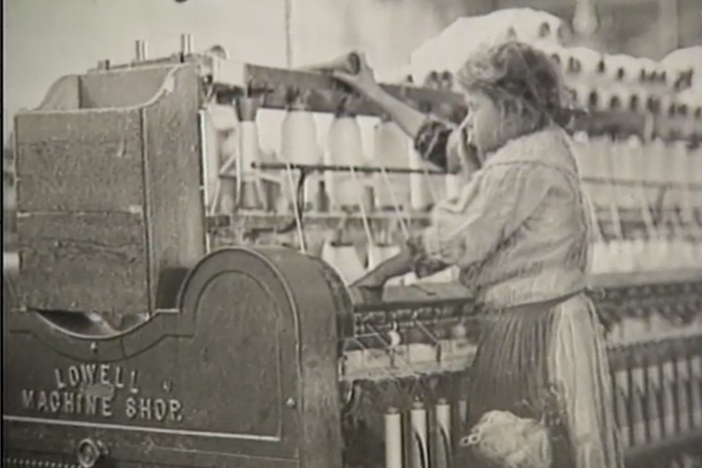The Baby Boomer Generation
World War II played a big part in the baby boom. Two World War II veterans, Cdr. Tyler Gresham and Lt. Col. Charles Dryden, recall the loneliness of WWII while June Duncan, wife of Gen. L.C. Duncan, describes what it was like when the soldiers did return home. Between 1946 and 1951, a record 22 million children were born in the United States. Emory University history professor Patrick Allitt discusses the many ways that babies stimulate the economy.
The Baby Boomer Generation
World War II played a big part in the baby boom. Two World War II veterans, Cdr. Tyler Gresham and Lt. Col. Charles Dryden, recall the loneliness of WWII while June Duncan, wife of Gen. L.C. Duncan, describes what it was like when the soldiers did return home. Between 1946 and 1951, a record 22 million children were born in the United States. Emory University history professor Patrick Allitt discusses the many ways that babies stimulate the economy.
1. Consider this statement: One cannot be single and be happy. Determine if society has changed popular opinion on this issue.
2. Describe the economic effects of the baby boom.
3. What are the long-term consequences - both good and bad - of this large contingent of our population living longer?
1. Construct a chart or graph showing ages according to percentage of Georgia’s population. How might the age factor have an effect on politics and income in a state?
2. Determine the current age of the people who were born from 1946-1957. What percentage of these people would be retired and eligible for Social Security? What percentage would likely be outliving the current life-expectancy (divide this into women and men)? Compare the lifestyle of these people’s grandchildren with their lifestyle in the 50s and 60s.
3. Sociologists have named and identified characteristics for each new generation. Do further research to identify later generations in American society and the characteristics assigned to them.
Baby Boom: a period [(approx. 1946-1951) following World War II] in which a significant increase in the birth rate occurs
POW (Prisoner Of War): a person who is held in custody by a warring power during or immediately after an armed conflict
birth control: a method or device used to prevent pregnancy
consumer: a person who purchases goods and services for personal use
1. Consider this statement: One cannot be single and be happy. Determine if society has changed popular opinion on this issue.
Many people believed that you could not be single and be happy. It was also believed that women should stay home, rear children and give up careers. Determine if society has changed their opinion on these issues.
Answers will vary. Students should be aware that the Women’s Rights movement, the push for ratification of the Equal Rights Amendment, and the Gay Pride movement has made a difference in how society views those who are single and women in the workplace.
2. Discuss the economic effects of the baby boom.
Industries increased that produced baby foods, diapers, clothes, toys, furniture, etc.
3. What are the long-term consequences - both good and bad - of this large contingent of our population living longer?
Some of these consequences are already being felt in our economy. Baby Boomers are now retiring and applying for and living on Social Security. The people who are younger than they and are still working and paying Social Security taxes are finding it discouraging. They think that even though they pay these taxes, they might not be able to use Social Security payments to fund their retirement as the Baby Boomers are doing. They realize that they will have to have a separate retirement fund of their own. In addition, a lot of industries are catering to the older generation almost as much as the teenagers and Generation X and Y. This is good for the economy. There have never been as many people living as long as the Baby Boomers are likely to live. They will continue to buy products aimed to help older people enjoy life. Already travel agencies and cruise lines are seeing a boom in business. Older people are more likely to travel more. Medicine (doctors and nurses and hospitals) is changing to the specialty of gerontology - geared more toward the treatment of the elderly. Living to be 100 years old is becoming more common, as well. Health services are promoting healthier lifestyles for older people, as well as those of younger ages. Because there are so many in this age group, research into the cure for diseases that particularly afflict the elderly are being studied more and more. Nursing homes used to be the only option for older people who could not care for or stay by themselves. Today there are numerous options for those in all socioeconomic groups. The rise in construction of ranch-style homes in 55+ (ages) communities with limited upkeep reflects this need for housing later in life. There might be more suggestions by you or your students if they know of needs of Baby Boomers being addressed in your own community.













